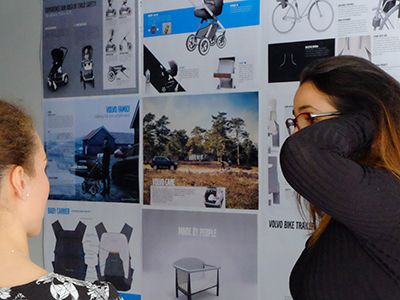The course is mainly directed towards training of different skills in product design.
The content revolves around an individual design project where the background studies are carried out in groups. In the project, the different parts should then be balanced and shaped to a whole.
The sustainability aspect is included, as the product is designed to function in a product-service system in a circular economy.
Within the course, current research in the field of industrial design and …….is discussed in seminars.
In the first item of the course, different methods and tools in HCD i.e user-centred design are trained. Here, the user's needs are investigated, regarding ergonomics, handling and functionality, through several different supplementary methods.
The next item deal with the importance of the trademark, strategies around development of trademarks and how it influences the design of products and services.
In the final item, the parts are put together in to a project where a product is designed and visualised with regard to both the user studies and the trademark development.
The course is carried out in project form, which is a practical item that requires attendance and active commitment of the students and including interaction with the teachers through supervision.
